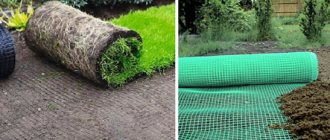The mole looks like a cute, harmless animal, but it can cause destructive damage to a planted plot of land. The mole lives underground and, breaking through tunnels, harms the root system of plants.
Ways to combat moles are as follows:
- Ultrasonic repellers;
- Poisoned with food;
- The holes where the mole comes out are filled in.
Some gardeners use homemade traps. How to make a mole repeller yourself and which ones are more effective is described in this article.
The effectiveness of homemade scarecrows
Outwardly, moles look like cute and harmless animals.
But at the same time, they can cause significant harm to the garden plot. Moles by nature are blind animals. Thanks to this, their hearing is highly sensitive. Accurate determination of the permanent habitat can be difficult because the family has several exits from the burrow. Therefore, determining its location is not easy. The task is further complicated by the fact that the depth of the hole can reach several meters. As a result, the right solution is to make homemade turntables from available or scrap materials.
Moles, in addition to causing harm, can also be beneficial. They constantly need food of animal origin. The animals eat beetles, caterpillars and worms in large numbers. Therefore, when deciding on the need to fight, you need to correlate these two facts. In addition, during the digging process, moles loosen and mix the soil.
In addition to the methods described above, you can use simple alarm clocks. You will need a few pieces in total. Clock mechanisms are placed in glass jars and placed in pits. In the process of fighting, you will need to set alarms several times a day for different times. As a result, moles will quickly leave the territory due to the regular and shrill ringing.
To increase efficiency, you can take a medium-diameter polymer pipe and drill many holes. When the clock mechanism is triggered, the hum will spread along its entire length and in all directions. Intense ringing will quickly force ferrets to change their habitat.
Repellers
Taking advantage of the fact that moles are very sensitive to various sounds. A number of manufacturers currently produce electroacoustic devices. First of all, ultrasonic devices. They do not cause any harm to humans, but for moles they become a problem for daily existence on the site.
Among the advantages is the penetration of sounds and other vibrations everywhere, despite obstacles. Typically, such devices operate from autonomous power sources, so they can be placed anywhere in the garden.
Mole traps
In cases where there are really a lot of moles, or for some unknown reason it is not possible to get rid of them using simple methods, mole traps will help. These devices will allow you to catch females ready to breed in early spring.
To determine the location for the trap, you need to press down the mole's passage.
Installation in such areas ensures quick capture of the animal. The main passages are often located in straight directions along fences, fences and foundations. The meandering lines are temporary, so setting traps there will not be effective.
Mole traps consist of several elements:
- input ring;
- pressure lever;
- guard ledge;
- alertness itself;
- spring ring.
The frame is made of a piece of steel wire 3.5–4 mm thick. Between the support and pressure zones there is a spring in the form of a spiral of 2.5 turns. The spring should create a pressing action of 4–5 kg and reliably press the animal to the lower area of the entrance ring with a weight of 2–2.5 kg.
Operating principle:
- When preparing the device, the pressure clamp is raised in the upper direction;
- the design provides for the penetration of the mole to a sufficient depth before the mechanism is triggered;
- the animal touches the horn with its head and thereby releases the clamping device.
Over the course of one day, several animals move along the selected path. At the same time, other individuals bypass the captured animal, making a small undermining. Therefore, along the entire path, you can catch a large number of moles at one time.
The main reason for the invasion of animals into garden plots is the looseness and fertility of the soil. Due to this, the prevalence of pests is highest. Since they are a favorite food of moles, the latter's colonies can be quite impressive.
All of the above methods have been tested many times by experienced gardeners. The production of some of them does not require financial investment at all. But the result will exceed all expectations, and uninvited guests will quickly disappear from the occupied territory.
Gardens and vegetable gardens are a good help both in terms of food and in terms of relaxation for the soul. But everything that is grown on personal plots faces many dangers - beetles, larvae, birds, moles. And if chemicals help fight plant diseases or insect pests, then it is best to scare away birds and moles from the site, rather than destroy them. A primitive design will help with this - a windmill made from a plastic bottle, made with your own hands from scrap materials.
What to do against uninvited guests?
Of course, progress has worked on this issue and offers a choice of ultrasonic repellers or chemicals. However, it is not a fact that these techniques will work in your case, but “the money was crying.”
Of course, you can record the sound of an eagle, the songs of cats in the spring, and play all this “music” for attackers. This is called a "bioacoustic installation". Note that this method is good to use in a nature reserve. In our case, it is completely unknown who will not stand it first: the moles, the neighbors or you.
So it makes sense to try to build a pest repeller for moles, snakes and birds with your own hands from auxiliary materials. If you can’t get rid of uninvited guests, then the money won’t be wasted.
Another "potential criminal"
Tools and materials
The device is made from simple and affordable materials. The design can have different sizes. A windmill for a vegetable garden is created using:
- two 1.5 liter plastic bottles (use plastic of different colors or pre-paint it with acrylic paints from spray cans);
- durable scissors;
- sewed;
- pliers;
- stationery or construction knife;
- strong but easily bendable metal wire;
- four multi-colored plastic bottle caps;
- large beads.
Decide in advance on the size of the mole repellent structure. Before making a large turntable, additionally acquire:
- a high wooden pole;
- round metal pin;
- a small wooden block;
- multi-colored or transparent plastic liter bottles - you will need 4 pieces;
- two washers.
Advantages of using a turntable
During the hunt, the animal is capable of digging up an area even in a short period of time. A bottle spinner for repelling moles will scare them away and protect existing crops.
Interesting! From experience, some summer residents know that underground inhabitants cannot tolerate various noises.
For example, this could be the sounds of an alarm clock, knocking on metal, or plastic crackling. Since the goal is not to destroy the guests, the trap will solve the problem in a humane way.
Basic manufacturing methods
Inventive summer residents have come up with a large number of ways to quickly build devices from improvised and even completely unnecessary things. Among them, there are several simple and quite effective options for combating moles.
Pinwheel made from a plastic bottle
The device looks like a kind of weather vane, which, when exposed to wind, produces a sound that is unpleasant for moles. It can work in any conditions.
To make a windmill, you will need a number of simple steps:
- take a standard 1.5 liter plastic bottle;
- Use sharp scissors to carefully cut off the bottom;
- turn it upside down and draw lines for cuts with a marker.
There are five sections on the bottom. It is necessary to mark the areas from the edge of the circle to the middle parts of each ray. Cut out the selected areas. After this, making a do-it-yourself mole trap from plastic bottles will be almost complete.
In the center you need to punch a hole with smooth edges. Insert a self-tapping screw into the center of the lid and screw it in until it stops.
For a more rigid fixation, it is advisable to use a nut of suitable diameter.
On the neck of the bottle, along the middle line, make two holes for the nail opposite each other. After this, secure the windmill to a pole and stick it into the ground.
Tin repellers
These include simple devices such as a piece of reinforcement with a suspended beer can, for example. Surfaces hitting each other under the influence of gusts of wind will produce loud sounds that are unpleasant for moles. The result of the manufacturing scheme is presented below.
An additional advantage is that metal reinforcement will conduct sound into the ground to a greater depth. As a result, the moles will leave the developed territory.
In the form of an airplane
Instructions on how to make an airplane-shaped mole repeller from a plastic bottle step by step:
- to make the hash brown, a metal pipe of medium diameter is dug into the ground;
- a separate pin will need to be tightly attached to the top of the site;
- make several cuts in the form of blades on the bottle;
- make holes at the bottom of the container with a hot nail;
- Place the bottle on the installed pin.
When exposed to wind, the blades will begin to rotate. The vibrations of the windmill will be directed towards the soil and scare away moles.
From several
To increase efficiency, it is recommended to install several turntables at once. The soil, especially dry soil, quickly muffles sounds. Installing individual elements will provide a much more active effect in repelling moles.
Method No. 5
To make another option, you will need a stick, garden shears and a plastic bottle. Further like this:
- in the walls you need to make wide cuts along the walls;
- they will require 2 additional cuts in a perpendicular direction at the top and bottom;
- after bending individual sections, you will get unique blades;
- the assembled mechanism must be put on the support, after which the device will become ready for action.
Under the influence of wind, parts of the system will begin to rotate. This will create an unpleasant sound that can rid the area of mole settlements.
Method number 6
To make a mole repeller with your own hands from a plastic bottle, you will need an additional plate cut from another bottle. Make 15 cm long slits in a solid bottle. Blades for a propeller of approximately the same size are made from a separate part.
Then they are stuck into the prepared holes to form a fan. You will need to make an additional puncture in the lid for the metal rods. After this, attach the structure to the stick. When rotating, the homemade product will make a peculiar noise to scare off moles.
B-52 strategic bomber against moles
It seems to me that anti-mole noisemakers for pest control in a summer cottage do not look very aesthetically pleasing and can be improved. At the same time, you can involve children in useful joint activities. Based on this, we put together a three-engine aircraft to repel pests.
To implement the idea, eight plastic bottles were required. The master class on making crafts is as follows:
- For the fuselage, a tall and thin bottle with smooth sides is better suited. Selected colors of the source material will decorate the repeller.
- For the motors on the wings, two small bottles with the neck cut off were used.
- From bottle number four we cut out wing blanks, as in the photo. The marker marks the places of cuts for attaching the wings to the fuselage.
- Cuts were made on the fuselage and engine housing to install the wings; they are also marked with a marker. Their length corresponds to the width of the connected wing, excluding the length of one cut on the wing.
- Now we bend one cut on the wing. It becomes narrower and fits into a slot on the aircraft body or engine. We insert the wing into the corresponding slot. The bent part on the wing straightens and secures the connection. We move the wing along the slot on the body so that it is held on both sides. To fix the structure, we pass an electrode or wire through the fuselage and wing. We also mount the second wing and motor.
- Three slots must be made on the rear fuselage for the tail and rear wings of the aircraft. Their length is determined by the size of the latter according to the above diagram.
- The photo shows the tail and rear wings of the aircraft. The slots for mounting are marked with a marker. The tail is made of two layers of bent plastic, and the wings are single-layer.
- We cut out three screws from the bottoms of the bottles according to the pattern marked with a marker.
- To secure the central screw, you will need a self-tapping screw and a washer. In the center of the screw, drill a hole slightly larger in diameter than the self-tapping screw.
- The plug is screwed onto the neck of the fuselage container. First put a screw on the self-tapping screw, then a washer. The self-tapping screw is wrapped in a cork.
- The propeller blades on the wings can snag the wing, so four washers will be needed.
- Before driving screws into the engines on the wings, it is better to first drill holes in the latter.
- The tail and rear wings are mounted in the same way as the front ones.
- Now you should determine the center of gravity of the model and in this place drill a through vertical hole in the aircraft body for installation on a metal rod. As when assembling a simple pinwheel from a plastic bottle, a stop made of copper wire should be mounted on the pin. A washer must be installed between the stop and the aircraft body.
Repellers that affect pests using vibration
Such devices are based on the principle of influencing animals using low-frequency vibrations, which are perfectly captured by the animals and cause them a feeling of discomfort. Its use in open areas is more effective than the use of ultrasonic devices, since the soil is a much better conductor of vibrations than ultrasonic waves.
The devices are equipped with an electronic timer that changes the vibration pattern, which prevents animals from becoming accustomed to a specific type of vibration effect. As a result, after 7–14 days the moles leave the inhospitable and uncomfortable area for their life.
Electronics against moles - modern methods
Whether folk remedies are good or not in the fight against moles can only be judged after testing them in practice. If the result is negative, you should resort to more modern methods - using electronic repellers.
If we compare a windmill against moles, assembled with our own hands, with a repeller, which generates not only sound, but also vibration with a certain periodicity, frequency and duration, then the advantage of the second option becomes obvious.
The design of such devices most often consists of a column buried in the soil (many mistakenly call it an ultrasonic repeller, despite the fact that there is no talk of extracting ultrasound), generating signals in a certain frequency range. In the case of moles, this is a sound with a frequency in the range of 300-400 Hz.
In conclusion, it is worth noting that fighting moles with folk remedies is the simplest, but not always effective method. Therefore, if experiments do not produce results, it is worth trying modern devices of proven quality.
These should not be cheap Chinese solar-powered repellers that operate unstable or cheap analogs of high-quality devices that fail after the first rain. Devices should be selected from trusted manufacturers at an adequate price. The costs will be justified in the first days after their use, which means that savings are inappropriate here.
The mole is a predator by nature. Its diet consists of larvae, small vertebrates, worms and insects. Also loves caterpillars, mole crickets and wireworms. He can get to them by breaking through long underground passages. As a result, the excess soil formed in the process of painstaking labor is pushed upward by the animal. This is how the mounds that gardeners dislike are formed. It is noteworthy that it eats precisely those pests that are capable of destroying the future harvest.
However, related problems arise - in search of something edible, moles dig long tunnels in the ground at different depths. Labyrinths laid deep in the soil damage roots and disrupt the natural microenvironment near the root system of plants. And the earthen heaps that appear on the surface spoil the appearance of the site. In general, it becomes obvious that the animal does more harm than good and then the question arises of how to get rid of moles on the site.
Eternal exile: blockade the moles
In addition to temporary methods of fighting moles, there are also more reliable ones, after which the animal will never be able to visit you at all. But this is not a one-day job. The main point of the fight is to place a blockade along the entire perimeter of the site, through which the mole will not penetrate. And since the animal rarely burrows more than a meter deep into the ground, it is precisely this depth that needs to be dug with a trench. It's a long time. But also effective! The finished trench is filled with slate sheets, metal mesh, stones and other hard material that the animal cannot break through. This layer should reach the very surface of the earth and be only slightly covered with soil. It is especially convenient to create such a barrier at the time of installing the fence. For example, for concrete fences the foundation is poured, although not to this depth. But you can dig even deeper and protect yourself from uninvited guests!
It should be remembered that not every mole in the garden will end in your victory. There are animals that are not afraid of either strong smells or noise. And then you will have to catch them with mole traps, and build an underground blockade for the “aliens.”
general information
A large number of moles appear in gardens in the first half of summer. This occurs due to the fact that the upper soil layer of forests and meadows becomes scarce and depleted. And garden associations and summer cottages with their fed “fat” soil, teeming with all kinds of living creatures, attract moles like a magnet.
During a short hunt for its food, a mole can dig up the entire area up and down, while spoiling a vegetable garden, beds with crops or a beautiful lawn. To prevent this from happening, you need to know how to get rid of an uninvited guest. If you do everything consistently, the result will be definitely positive and the mole will leave the area where he is not welcome.
Mole
There is an opinion that moles are afraid of unpleasant odors. As a result, some summer residents water their gardens with carbide and kerosene, scatter rotten fish around the area and use smoke bombs. However, such methods are unlikely to suit good gardeners - is it possible to have a good rest in a plot that constantly stinks of rotten meat and kerosene?! Therefore, people are looking for alternative ways to fight.
Attention! Industrial enterprises have developed and produce various types of electronic repellers. But the price for them is quite high.
Experienced summer residents know that moles cannot stand any kind of noise. They do not like the sound of metal, the crack of plastic, or the ticking of an alarm clock. It was these characteristics of the animal’s character that served as the theoretical basis for the creation of various types of mole repellers.
Do-it-yourself antikrot No. 6
And the last miracle device, made with your own hands against moles, is a giant propeller, the design of which, again, did not do without tin cans.
As you can see, the basis of all the mole repellers that have been listed is the principle of creating as much noise as possible in the ground where the mole lives. And since moles do not like noise, they will leave your area.
The SMR-801 repeller is designed for areas up to 1000 square meters. m. Used against various rodents and moles. Powered by solar panels and built-in battery.
Tornado OZV.02 is designed to protect land from rodents and other pests (moles, shrews, gophers, rats, voles, mole crickets). For areas up to 2000 sq. m.
Electronic earth pest repeller antikrot Tornado OZV.01, designed to protect land from the habitat of rodents and pests (moles, shrews, gophers, rats, voles, mole crickets, etc.). Power: 6 V. Effective area: 1000 sq.m.
This repeller is for areas up to 650 sq. m. Designed to combat all common crop pests: moles, voles, shrews and others. The mole repeller SM-153 (MS-15) operates on a solar panel to which a battery is connected.
Mole 1 (WK-0675) emits ultrasonic and sound signals that affect the nervous system of moles and force them to leave the protected territory. Power supply: 4 class D alkaline batteries. Effective area: 100 sq. m.
The mole repeller is designed to protect land plots from the habitat of rodents and pests (moles, shrews, mole crickets, etc.). Power: Solar battery + battery. Effective area: 350 sq.m.
Everyone likes the singing of birds, it is interesting to watch the snake in the circus and it is interesting to look at the mole in the picture. It would seem, what do moles, birds and reptiles have in common? First the bad: we don't like them all as uninvited guests. Those who read this do not need to explain why. Now about the good stuff: all these living creatures are afraid of noise!
Here I am: you probably weren’t expecting me?
Let's assume that they won't be able to reach an agreement among themselves and won't all attack at once. However, there are folk remedies that help get rid of all the listed pests indiscriminately in the garden.
Details
Instead of a BA1 telephone capsule of the TK-67-NT type, you can use similar capsules of the TA-56M, TA-56, TON-2 or TG-7 type with a winding resistance of about 60 Ohms. Diodes, capacitors and resistors are suitable for any type.
Diodes, capacitors and resistors are suitable for any type. Any npn transistor is suitable, but it is better with a minimum voltage drop between the collector and emitter. In this case, the emitted power of the sound signal will be greater without increasing the current consumption of the mole repeller.
The D1 chip of type K561LE5 can be replaced with a foreign analogue CD4001A, and type K561IE16 with a CD4020B chip.
Mole trap made from a plastic bottle
So, the first type of trap is a kind of analogue of the commercially available pipe mole trap, but the “locking” element in it works on a slightly different principle.
The photo below shows a mole trap-pipe for comparison:
The mole easily climbs into such a trap, but cannot get out of it. It is implemented as follows:
Take a plastic bottle with a capacity of 1.5 liters - it will be the basis of the design
It is not worth taking smaller or larger bottles, because a liter bottle is too narrow, and it is difficult for the animal to climb into it, and a two-liter bottle, on the contrary, is too wide, and often does not fit into the animal’s path; Either the bottom or the neck of the bottle is cut off - it doesn’t matter. The main thing is to make a free entrance on one side, and on the other there should be a dead end; Then take a second bottle of the same size, which, in fact, will clog the mole. The dense part of the neck is cut off (on which the cap is screwed), but a “funnel” is left, and the bottom is also cut off (you can even cut off the bottom half of the bottle); In the second bottle, 10-12 longitudinal cuts are made on the tapering part until the transition to the flat part
The result is a kind of long “petals”; After this, the second plastic bottle is inserted with its narrowed part into the open passage of the first, and the junction of the two bottles is secured with tape.
The dense part of the neck is cut off (on which the cap is screwed), but a “funnel” is left, and the bottom is also cut off (you can even cut off the bottom half of the bottle); In the second bottle, 10-12 longitudinal cuts are made on the tapering part until it becomes a flat part. The result is a kind of long “petals”; After this, the second plastic bottle is inserted with its narrowed part into the open passage of the first, and the junction of the two bottles is secured with tape.
That's all, the mole trap is ready. If you place it in a mole passage, the animal will make its way into it along the second (entrance) bottle: under its pressure, the petals will easily bend and do not prevent it from crawling along the joint line, thereby ensuring unhindered access to the main bottle.
After the animal passes, the petals close again. Here he reaches a dead end, turns around, tries to move back, but runs into narrowed petals that he can no longer move apart. The mole is caught.
This mole trap made from plastic bottles is easy to make with your own hands in about 10-15 minutes.
Not everyone takes into account that this mole trap can be easily improved, increasing its efficiency by approximately 2 times, if both the bottom and the top of the main bottle are cut off, and then “valves” are installed on both sides, allowing the animal to only pass inside. In this case, you won’t have to guess from which side the mole will approach the mole trap in its underground passage. Moreover, as practice shows, if there are several animals on the site, a “double” trap can catch two moles at once.
The video at the end of the article shows the process of making a mole trap with your own hands.
However, it is important not only to make the mole trap correctly, but also to install it correctly on the site, since the final result of its work also largely depends on this
Printed circuit board
Due to the impossibility of manufacturing a printed circuit board for a mole repeller using chemical technology, a mechanical method was used to remove sections of copper foil from foiled fiberglass laminate.
The location of radio components on the printed circuit board of the mole repeller is shown in the photo below.
The appearance of the printed circuit board for manufacturing by photochemical method and the location of radioelements is shown in the photograph below.
The board can be made from 1.5 mm thick fiberglass foil on one side.
A site visitor, who introduced himself as San Sanych, kindly provided his version of a rodent repellent printed circuit board, laid out in the graphic editor for PCB layout Sprint-Layout 3.0R, for which many thanks to him.
Radical methods of struggle
If the methods listed above did not help, it’s time to radically change your actions. The moles must sense whose land it is. We must continue the fight with the help of:
- ultrasonic device (bought at a garden center, runs on batteries within a radius of 15 meters);
- mechanical mouse traps;
- firecrackers (they are set on fire and thrown into passages);
- rags soaked in gasoline (placed in the center of the hummock and covered with earth);
- smoke screen (the newspaper is doused with machine oil, set on fire, and the mole is smoked out with smoke);
- granular mineral fertilizers (filled inside the hole, buried with earth);
- raw chicken egg (it will rot in the molehill and drive it out);
- a zinc-based preparation;
- chemical poisons from rodents;
- exhaust gas from a running car engine.
Mechanical methods of mole control have proven their effectiveness in practice. Along the entire perimeter of the site, a mesh is buried to a meter depth, gravel is poured, boards and old linoleum are laid (whatever is found in the house). This will create a barrier. Will not allow the digger into the territory.
To protect the lawn from unwanted visitors, lay out a plastic mesh over the entire surface of the area allocated for it. The top is covered with drainage and soil. Even if a mole climbs into the area, it will not be able to lift a mountain of earth onto the grass - the net located below will interfere.
Mechanical methods will not drive away the underground guest, but they will not spoil the appearance of the landscape design.
Additional tips and tricks
- The key to the success of homemade models is their number - the more repellers you place on the site, the sooner the moles will leave it. It would be useful to combine different types and types of homemade “scarecrows”;
- Most repellers are quite noisy. Decide in advance whether you can tolerate constant noise and crackling on the site. If the answer is no, pay attention to ultrasonic devices;
- If moles have been settling on your site for several years, you should worry about protection in advance - in April-early May you can already install several “rattlers”. Mammals will most likely avoid the unpleasant territory without having time to settle underground.
Moles are cute underground inhabitants (All about moles - description, habitat, types and features, read more in the article here), which actually do not harm crops and soil fertility, however, they still need to be gotten rid of. First of all, you should decide for yourself whether you want to spend money on factory devices or install the mechanisms yourself, sacrificing the appearance of the site.
Source
Options from plastic bottles
The simplest version of a homemade repeller is a bottle placed on a pin. Also suitable for empty beer cans. The pin must be stuck into the ground so that sound and vibration are transmitted to the wormholes.
The most difficult option is a windmill against moles. To make it you will need a one and a half liter beer bottle.
In addition to the bottle, you need good scissors, a marker, a self-tapping screw with threads that do not reach the head, a nail, an awl and a windmill stick. Given the maximum complexity of creating such a mole repeller from a plastic bottle, there are no visual diagrams or drawings. There is only an extremely clear video.
- The bottom of the bottle is cut off along the horizontal line that is found on all plastic bottles.
- The cut bottom is turned over with the bottom up. The bottom has the shape of a five-rayed star. Using a marker, mark the areas that need to be cut out: from the border of the central circle strictly in the middle of the “ray” and from the middle of the central circle along the hollow between the “rays”. This part needs to be cut off. It turns out that half of the “beam” is cut out.
- The operation is repeated on all “rays”. The propeller is ready. All that remains is to punch a hole strictly in the center of the circle. The hole should have perfectly smooth edges and a diameter larger than the provided screw.
- Insert a self-tapping screw with the head “inward” into the resulting propeller and screw it into the center of the bottle cap until the thread runs out. To make screwing easier, you first need to make a small hole in the cap. On the inside of the cover, the self-tapping screw can be secured with a nut for reliability.
- Make two holes for a nail at the bottom of the bottle neck, strictly along the center line. The holes must be strictly opposite each other.
- Take an almost finished windmill and secure it to a wooden pole. Stick the pole into the ground in the garden.
When there is wind, the propeller makes a rather nasty noise, which moles are afraid of. The advantage of a windmill is that it will work in any wind direction. In fact, this is an ordinary weather vane.
The ultrasonic model sends high-power ultrasound signals towards the dog. Ultrasound has a depressing effect on dogs, forcing them to turn around and even run away, while the device is completely safe for humans. As the dog approaches, the signal intensifies and the animal begins to feel discomfort. The device is compact and can be carried with you in a bag or pocket. As the animal approaches, it will react and the signal will increase. With a repeller, a whole pack of dogs is not scary, which is very convenient; you can do without blood and victims. There are a lot of electrical diagrams for this device on the Internet, so if necessary, you can assemble it yourself and buy the components at any radio store. The device is quite simple, and it will cost you much less.
An electric device or stun gun is no less popular. It’s also compact, and when you press the button it produces a characteristic crackling sound, which means that ozone is released, which is unpleasant to a dog’s sense of touch. The device is dangerous for an approaching dog; if the distance decreases, it can give an electric shock and temporarily paralyze
The device will also force the dog to open its jaws if the dog still grabs you.
Gas in the form of a gas canister with a chemical filler inside
When buying a spray can, pay attention to its technical characteristics, since not all products are effective; if a dog attacks, the product may simply fail. When sprayed, the dog should charge, run away and no longer show aggression.
In principle, you can build a gas pistol yourself by filling the cartridges with red hot pepper. You can leave the device idle. Sound is effective against dogs; the device can also be made with a light signal reflector.
Repeller - smell. Everyone knows that dogs have an excellent sense of smell and they do not at all like, for example, the smell of medical or isopropylene alcohol. All you have to do is wet the tampon. But this method has a big disadvantage - the alcohol evaporates quickly, which means you need to carry it with you at all times when going outside. Hot capsicums are irritating to the dog's nose, skin, and eyes, as is the smell of lemon, orange, and vinegar.
Deterrents - how do they work?
When analyzing methods of fighting moles, one cannot ignore repellents. With proper selection and application, they allow you to solve the problem in a few days with minimal effort in at least half the cases. Therefore, before moving on to more radical methods, it is worth trying to start with repellers.
As noted above, it is possible to scare away moles from the area using unpleasant odors and sounds. It is worth using both methods in combination.
As an option, it is worth considering sound repellers, made with your own hands from scrap materials:
- turntables;
- weather vanes;
- alarm clocks;
- bottles, etc.
Pinwheels are made from ordinary empty plastic bottles or cans. They are mounted on metal poles firmly fixed in the ground. When the wind blows, they begin to make loud sounds that enter the soil. Often moles are frightened by the turntables and leave the area. But it is impossible to say that a windmill for repelling moles is a one hundred percent effective remedy, because it does not always act as its manufacturers would like.
Weather vanes have a more complex design, which operate on the principle of turntables or, as an option, reed stalks that make a sound in the wind.
An interesting option is Chinese battery-powered alarm clocks. They are placed in ordinary glass jars, after which the device is buried in the ground in the expected habitat of the moles. You need to bury several jars with alarm clocks, with each one set at a different time, forcing them to go off one after another with minimal pauses.
Alternatively, you can use empty plastic bottles. They are simply laid out around the site in large quantities. Nighttime temperature changes cause the air to expand and contract, causing the plastic to crack, again irritating and frightening to animals.
The method of repelling moles using glass bottles is more than simple. They are buried in the ground at an angle of 45 degrees, leaving only the neck outside. Blowing into it, the wind will cause a sound to be produced that scares away moles.
All of the above means are installed near the expected mole habitat, focusing on the tunnels. The more repellers are used, the more likely it is that control methods will produce positive results.
Making a simple mole repeller
A simple plastic bottle will help us here. The thing is also very multifunctional, from which craftsmen make everything very simply and no abstruse drawings or operations are required. We just take the bottle and cut it out, and then bend the blade pockets. Next, from below, in the bottom, we make the hole we need. And we put the bottle on a tube (diameter about 1 cm) or on a thick steel wire (or something similar).
At the slightest wind, such a bottle with blades spins very well on the tube, and this creates noise, which also resonates into the tube (therefore, the tube is preferable in this case). And this noise, through the tube, goes into the ground, that is, into mole tunnels. Such a tube with a bottle should be inserted into underground voids, next to a fresh molehill.
To further enhance the effectiveness of this technique, you can further improve the design of such a homemade pinwheel device made from a plastic bottle.
For this we will already need a water supply, metal pipe. The diameter of this pipe can be 1/2 mm or 3/4 mm, there is not much difference. We hammer this tube deeper, that is, so that the lower part (that is, the end of this tube) is slightly deeper than the level of the mole’s underground passages. Next, we insert a suitable metal pin into this tube (the part at the top). And so that this pin does not dangle in the tube, it will need to be strengthened in the center with a wooden stopper. Then we also put it on the pin, having previously made a hole in its bottom, using a hot awl or a nail. The diameter of such a hole should be slightly larger than the diameter of the pin itself. We also make blade pockets on the bottle, which we bend outward. That's it, the repeller is ready. When the wind blows, the bottle will rotate, and the hollow pipe will again resonate this unpleasant sound. This creates noise, which moles are very afraid of; they simply cannot stand this constant and very unpleasant noise for them and will leave your area.
You can create the same effect if you stretch your used tape from a video or tape cassette onto small pegs made of any material (25-30 centimeters). When it vibrates, it also creates an unpleasant, slightly whistling sound. Such a sound is also good at scaring away these mole rats. In addition to moles, birds, such as sparrows, for example, are also afraid of such a device.
In conclusion, there is also a video where they will show you the manufacturing technology of this device. Let's see.
The appearance of moles on a lawn or garden plot does not bode well, even if the animal accidentally damages the roots of plants and does not feed on crops from the garden bed. Trees, shrubs, and vegetable plants that find themselves in the hunting field of the common mole die. Within a few days, nothing remains of the ideal lawns. In addition, they destroy beneficial earthworms and throw layers of infertile soil to the surface.
A good owner cannot stand this, and begins to look for an effective and quick way to get rid of the uninvited guest and his family once and for all.
Read - and what do they bring more - benefit or harm?
But before organizing the expulsion of a low-blind pest, it is necessary, at least in general terms, to become familiar with its biology. For some, their knowledge of moles ends with the cartoon about Thumbelina. But in real life, moles do not count money themselves, but force the owner of a lawn or garden plot to count losses.
Advice from gardeners
There is a lot of advice on the Internet, but not all of them are effective, and some are even dangerous:
- Flooding passages with water from a garden hose. With an extensive network of tunnels, flooding will turn the area into a swamp.
- Start the exhaust from the car into the passages. The method is dangerous for the entire microfauna of the site - microorganisms necessary for cultivated plants. May be hazardous to pets and small children.
- Poison from boiled wheat and poison. Moles are not interested in plant foods, so the method is ineffective.
- Domestic cats are excellent mole hunters. Perhaps such a home hunter will not be able to remove the entire colony of moles, but it will help significantly.
- Perhaps the best advice is to think things through in advance. Set up a fence and set traps. Determine the place where to take the caught moles to increase their chances of survival.
As you can see, there are various folk methods that allow you to remove moles from the site: you can plant plants that are unpleasant for the pest, install mechanical repellers and traps. In special cases, poisonous substances are used, but you need to be careful and weigh everything carefully. A reliable way to prevent intrusion is a mesh barrier.
It is not necessary to destroy moles. This animal is a necessary part of the natural balance. It eats insect pests in large quantities and repels rodents. But, if the gardener does not intend to put up with this, then the folk methods of how to remove moles from the site once and for all, described above, will come in handy for him.
In the second year, several moles appeared. They moved to my well-kept beds from the neighbors and actively began to destroy the roots of beets, cabbage and other vegetables. They do not feed on plants, but destroy beds and lawns in the process of preying on mice, worms and insects in the soil. I’ll tell you how to drive moles away from your site and what means other summer residents use.
Step-by-step instructions for creating a mole repeller
Step-by-step instructions depend on the type of windmill, its size, shape, so each “propeller” will be slightly different both externally and during its manufacture.
So, when you have everything you need, you can start
The bottle can be of any color, shape, volume... This is not so important. Provide yourself with a comfortable place to work
It is better to do everything at a table on a flat surface. Then no problems will arise. The instructions are as follows:
- Take a plastic bottle and a knife (scissors).
From it you need to make a pinwheel, which, thanks to the blades, rotates in the wind. There are many options here. You can create one row of blades, but long ones, or you can cut two rows, but smaller ones in a checkerboard pattern. There can be 2, 3 or 4 blades in a row. It all depends on you. You just need to make a vertical cut, from which two additional horizontal ones extend from above and below. This is necessary in order to bend the blades. Advice! Bend the blades to one side, otherwise the repeller spinner will not spin. - Next you need to make a hole in the bottom to insert the rod into it. The hole should not be end-to-end; the stick or rod should move freely through it. A rod is inserted into this hole and the structure is almost ready.
- There is another variation where you don't need a drill. It is enough to unscrew the cap from the bottle and place it on the glue on the bottom from the inside. The lid is fixed with the sides up. Since you already have the blades ready, nothing will stop you from doing this. Now the bottle can be put on a rod or stick through the neck. And thanks to the lid, the structure will not wobble much while in one place.
- Sometimes the sound of simple rotation is not enough. Moles are blind, so their hearing is very acute. But a frequently rotating bottle will not make sounds. In this case, you need to make a ratchet. There are plenty of options. You can attach a bell to the blades, which will significantly enhance the sound and vibration.
That's all, the device is ready. Now you just need to find the mole's tunnel in order to insert the rod into it. Due to the vibration and sound transmitted from the bottle along the rod into the ground, moles will not approach this place. They are afraid of such aggressive noises. If you have a large garden, then make several structures to prevent moles from appearing in another part of the garden.
What you need for work
The advantage of a plastic bottle repeller is that you will need a minimum set of tools and materials. Anyone can work with them, and purchasing them is not a problem at all. You can see this for yourself. Here's a list of everything you'll need:
- plastic bottle;
- steel rod or wooden stick;
- stationery knife or scissors;
- drill with a drill (in some cases this is not required).
That's the whole set. Are you surprised? It’s not worth it, because for all its simplicity, the mechanism works flawlessly. You just need to connect it all into one device.
Note! The device is automatic, but only works from the wind. In calm, windless weather it will simply be useless.
Less humane means:
- chemicals (chemicals) - sold in gardening stores;
- special mechanical wing traps. They operate similarly to mousetraps. Bait is placed inside. The mole enters the trap and remains there. Usually such devices are stuck into a mink:
calling a team of specialists who pump a certain chemical composition into the mink. It causes moles to lose their sense of smell and soon die.
We would recommend using products that literally kill rather than repel moles in extreme cases, when the damage from moles is widespread and nothing else helps. Remember that moles in the country also have benefits: they eat the larvae of insect pests (chafer bug, mole cricket, click beetle, moth pupae, as well as the seeds of some weeds).
The mole looks like a cute, harmless animal, but it can cause destructive damage to a planted plot of land. The mole lives underground and, breaking through tunnels, harms the root system of plants.
Ways to combat moles are as follows:
- Ultrasonic repellers;
- Poisoned with food;
- The holes where the mole comes out are filled in.
Some gardeners use homemade traps. How to make a mole repeller
yourself and which of them are more effective is described in this article.
Biological characteristics of the pest
The common mole, like the hedgehog, belongs to the order of insectivores. Already from the name of the group it is clear that it cannot feed on potatoes and other underground parts of plants.
Weighing 130 g, the body length reaches 15 cm. It feeds exclusively on insects and for this, at a depth of 10-50 cm, it digs a system of underground passages with its powerful forelimbs. The nest is built at a depth of up to 2 meters. There, in a dug labyrinth, it finds food for itself: earthworms, insect larvae and other arthropods.
In the photo there is a system of mole passages underground
To compensate for poor eyesight, it has phenomenal hearing and sense of smell. Like all animals, they love silence, so when there is strong sound exposure, they leave the developed territory. People take advantage of this weakness of his. Plastic anti-mole turntables and other homemade repellers made from scrap materials are used.
Alarm clock repeller
To be effective, you need to have several alarm clocks that have different alarm times. Alarm clocks are placed in jars, which are closed with lids and installed in different places on the site. The best option is to bury containers with alarm clocks in the ground. As a result, after a certain time, all alarm clocks underground will start to go off stably. Sounds regularly made in the area will force moles to look for more comfortable places.
The second option consists of a pipe buried in the ground into which an alarm clock is placed on a string. Thanks to the rope, such an alarm clock can always be taken out of the pipe.
When to start fighting against moles and why?
Traces of a family of moles in a summer cottage cannot be ignored while waiting for the problem to be resolved without personal intervention. The more time the mammals have at their disposal, the more difficult it will be to deal with them in the future. A network of holes and tunnels will entangle the entire site and this will negatively affect not only the aesthetics of the site, but also the harvest.
You need to constantly “defend” the land, even when it seems that there are no more moles on it. Simple preventive measures will eliminate the possibility of pests returning to their previous place of residence if they remain in a neighboring area.
It must be remembered that moles are family animals that reproduce quite actively. That is why it is so difficult to get rid of them after a long period of residence on the site.
What means are used to combat earth destroyers and how effective are they? More on this below.
Comparison of homemade and industrial repellers
Of the industrial mole repellers, ultrasonic ones are the most popular. But according to reviews, not all of them are effective. They speak negatively about Russian-made ultrasonic mole repellers and praise Japanese ones.
According to homemade repellers, they note that moles have little fear of windmills and turntables, sometimes making a hole right next to the pin. Ringing alarm clocks or constantly playing modern music to the animals will effectively get rid of moles from the area.
How to use alarm clocks against moles
Repelling moles from a summer cottage using a clock mechanism is already a proven and most importantly effective thing. To do this, you need to purchase an inexpensive battery-powered alarm clock, or better yet more than one. The clock can set different ringing times. After which they are placed in glass jars with screw caps. This “gift,” previously tested for leaks, is buried in different places on the site. Moles are very annoyed by the endless ticking of the clock, and even more so by the ringing of the alarm clock. In this simple way, an alarm clock against moles helps a lot.
A slightly more complex version, again using a watch, is also considered very effective. To make such a homemade repeller with a clock mechanism, you will need a wide pipe (half a meter). Holes are drilled on its sides and in the lower part. The pipe is buried on one side in the ground, below the level of the mole’s underground corridors. An alarm clock is lowered into the pipe itself, to which a rope is tied for ease of further removal. The ticking mechanism creates an ultrasonic effect inside the pipe. And the mole is forced to leave the area.
Thus, using an alarm clock against moles, you can get rid of them one hundred percent. The main thing is to wait until the enemy’s nerves give in and he retreats from the battlefield.
As you can see, various types of noisemakers are excellent at scaring away moles. It is the annoying sound that complicates their life in a certain area. The most important thing is that the methods have been repeatedly tested and effective. Using them, it is quite possible to get rid of these creatures in your garden once and for all.











